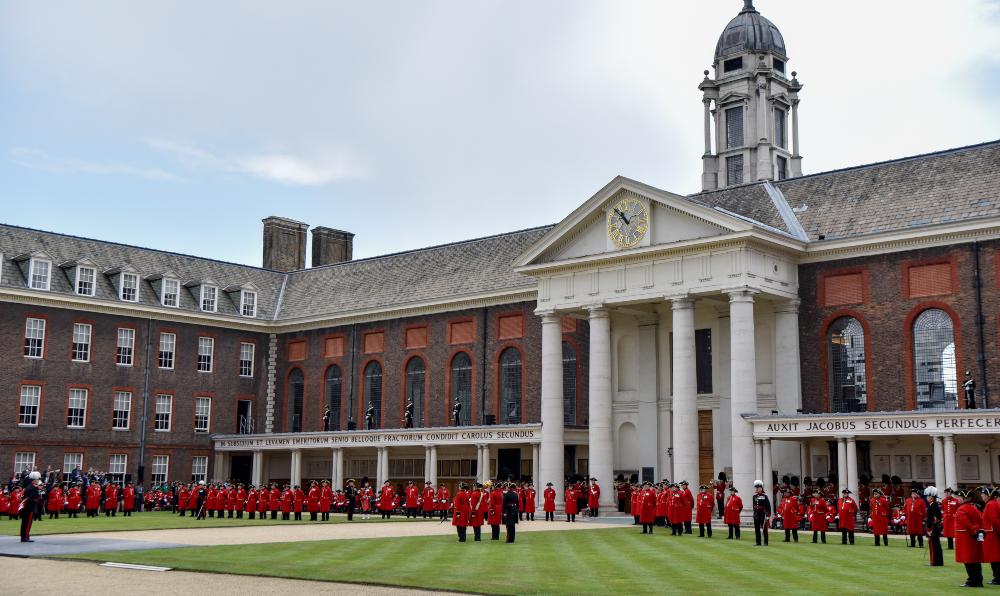
Chelsea History Festival
Behind the scenes of this month’s inaugural Chelsea History Festival
An all-new five-day festival aiming to bring local history to life is coming to town. The new Chelsea History Festival will take place 9-13 October with more than 35 events that include world-class speakers, historians, performers and authors at three iconic venues along Royal Hospital Road: the National Army Museum, the botanic oasis of The Chelsea Physic Garden, and the Royal Hospital Chelsea.
Launching on the 75th anniversary of Operation Market Garden, one of the most daring campaigns of World War II, the festival opens with celebrated Arnhem veteran, Victor Gregg in conversation with bestselling historian Rick Stroud, followed by a lecture from Antony Beevor on the famous ‘battle for the bridges’. Other highlights include David Nott sharing his experiences as a surgeon in Aleppo, New York Times bestseller Sonia Purnell on stage, and an evening performance of The Lark Ascending, featuring leading baritone Roderick Williams. Artist, author and Chelsea History Festival’s creative director, Harry Parker, tells us more…
Why did you get involved?
There are loads of festivals in London, but very few that focus on history – I thought it was a great idea. I love the way Chelsea is a mix of paradoxes; it represents a history of royalty and anarchy, it feels conservative and yet bohemian, it is both local while also international. The festival will be strongly rooted in this heritage.
What surprises lie in store for visitors?
We want to excite, engage and bring history to life for as many people as we can. I think our venues are brilliant. Listening to a broadcaster like Gyles Brandreth or baritone Roderick Williams in the stunning rooms of the Royal Hospital will be fantastic. For those who don’t know the area, discovering the Chelsea Physic Garden, one of our other venues, will be a real treat. It’s a botanical garden tucked away by the Thames – it’s one of the most beautiful spots in central London. There are some great talks going on there, including one by Lara Maiklem about Mudlarking on the Thames.
Any personal highlights?
I’m thrilled about everyone who has offered to be a part of this first festival but the two I’ll definitely be trying to sit in on are the surgeon David Knott because of his work in Syria and hearing it told first-hand. And then Paul Wood, as his take on the trees of London is such an usual way to look at our amazing city.
What are your favourite free events?
This year we have a band from the British Army playing as a jazz orchestra rather than a marching band, which should be fun. There’s also the history hunt around the Royal Hospital – it’ll be a great way for families to discover some of the hidden history of the building and gardens.
How will the festival benefit the community?
We have established a local schools programme that will expand in years to come and have a number of events that focus on local history. We also have a guided walk down Tite Street. This iconic street splits the festival area. It’s amazing to think that Whistler, Wilde and Sargent all lived within a few hundred yards.
Do you have a favourite walk around Chelsea?
Not a walk but a kayak! Twice a week, I paddle from Cremorne Gardens early in the morning. I love passing under Albert Bridge and then down to Chelsea Bridge and seeing the Blitz damage on the arches. It reminds me that not so long ago there was war in this city – it makes me feel very lucky.






